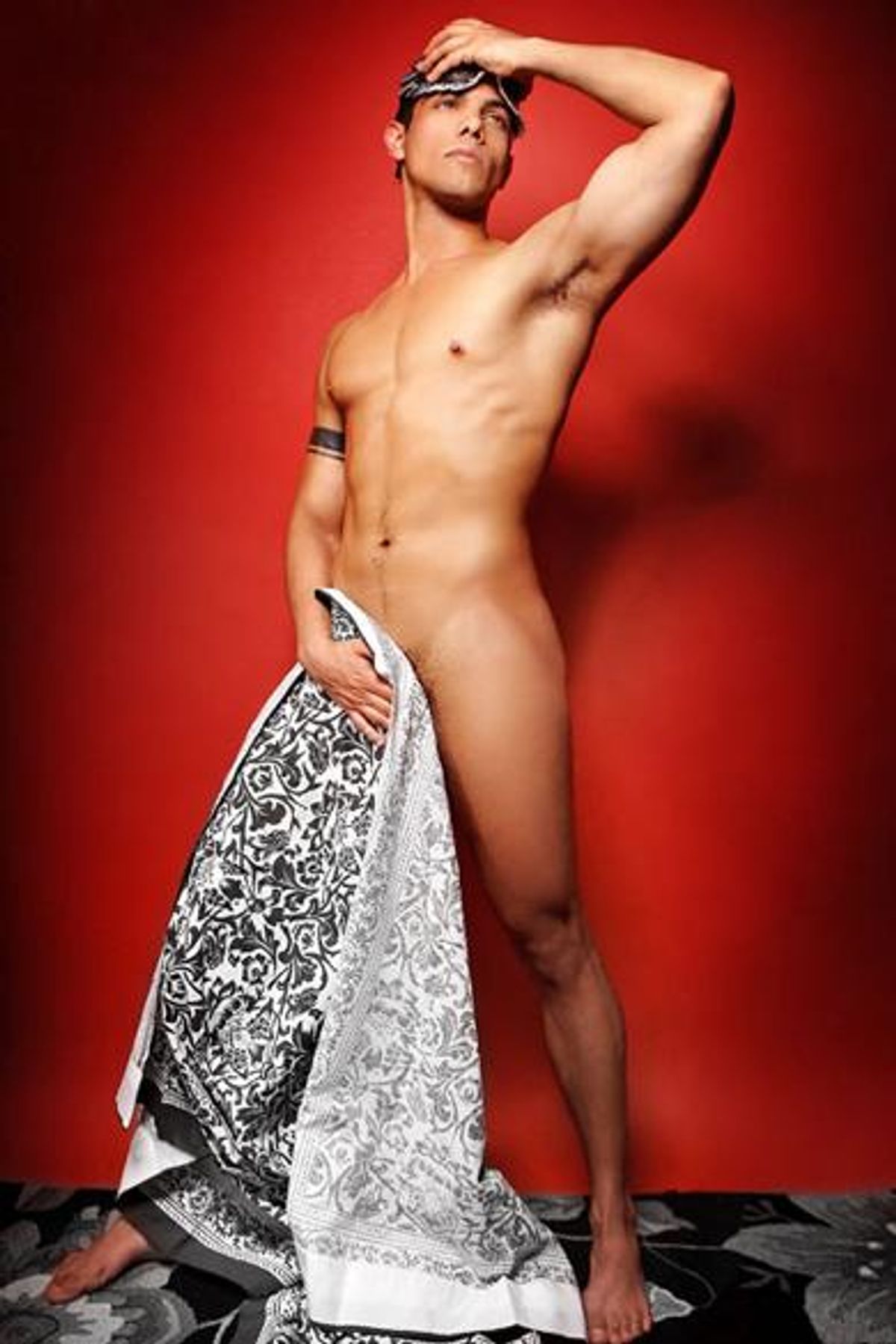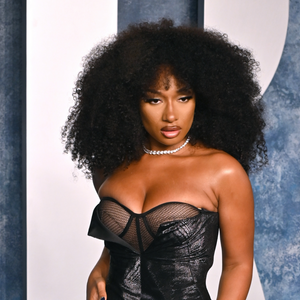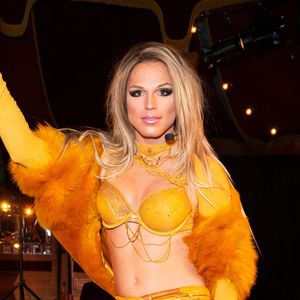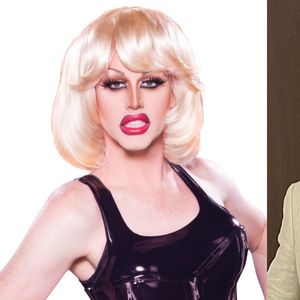
CONTACTStaffCAREER OPPORTUNITIESADVERTISE WITH USPRIVACY POLICYPRIVACY PREFERENCESTERMS OF USELEGAL NOTICE
© 2024 Pride Publishing Inc.
All Rights reserved
All Rights reserved
By continuing to use our site, you agree to our Private Policy and Terms of Use.
When author Marten Weber first read the memoirs of the legendary Italian lothario Giacomo Casanova, a man whose name is synonymous with seduction, Weber found himself disgusted at the historical inaccuracies of the books and films that have since been produced about the guy. "The image of this handsome adventurer who 'seduced' women is a complete fake. He was stupid, untalented, often mean, selfish, and manipulative. He paid off mothers to have his way with virgin teenage daughters -- he almost exclusively slept with very young girls. He bought and sold virgin girls as young as 9 to other men, and he swindled his way into a fortune. How he could ever end up a sort of cultural icon, or being played by Heath Ledger, is entirely beyond me."
But he did have a brother, and from that sprung Weber's new novel, Benedetto Casanova: The Memoirs (Aquarius Publishing), one of many new books that reimagine -- some with more fictional flourish than others -- the lives of LGBT historical figures. Most notable of them is acclaimed lesbian author Ellis Avery's The Last Nude (Riverhead Books), which is a lush work of historical fiction that imagines a love affair between bisexual art deco painter Tamara de Lempicka and a young American woman who serves as muse for her most iconic work, Beautiful Rafaela (a painting that TheNew York Times called one of the most important nudes of the 20th century).
Paul Russell's The Unreal Life of Sergey Nabokov (Cleis Press) is a story as moving as Avery's and one that's never been told. Nabokov, brother of the famous author of Lolita, was arrested for being gay and sent to a German labor camp where he died of dysentery, exhaustion, and starvation -- while Vladimir was in the U.S. becoming one of the greatest authors of the 20th century.
Mary Walker Baron's new novel, But This Is Different (Steel Cut Press) is a lesbian eco-philosophical romance that even offers a solution to the mystery surrounding the disappearance of Amelia Earhart: What if she orchestrated it in order to live with her equally famous lover without the prying eyes of the paparazzi?
These "novels based on the life" of LGBT historical figures let authors like Russell, Avery, Baron, and Weber right the wrongs of invisibility or fill in the gaps of imagination with "what ifs."
While his book is fiction, Weber says, "My Benedetto is not entirely fictional. In his memoirs, the historical Casanova mentions that his mother gave away two newborn children, and that he had no idea what became of them. It was quite normal in the 18th century to have children raised by strangers, especially when the family was not financially well off. In 1761, Casanova visits the wife of his real brother and finds out that their marriage is loveless, because the brother has no 'interest' in the wife. Casanova does not write much about the incident, and the wife claims that her husband was impotent. There are however certain indications that he was simply not interested in women, so Casanova may really have had a gay brother."
These days, even Homer's Iliad is not safe from new interpretations: Madeline Miller's novel, The Song of Achilles (HarperCollins) brilliantly unmasks the doomed love affair between soldiers Achilles and Patroclus. The idea, though, wasn't new, she says: "I stole it from Plato! The idea that Patroclus and Achilles were lovers is quite old. There's a lot of support for their relationship in the text of TheIliad itself, though Homer never makes it explicit. For me, the most compelling piece of evidence, aside for the depth of Achilles' grief, is how he grieves: Achilles refuses to burn Patroclus's body, insisting instead on keeping the corpse in his tent, where he constantly weeps and embraces it --despite the horrified reactions of those around him. That sense of physical devastation spoke deeply to me of a true and total intimacy between the two men."
Don't think these authors are just dreaming these stories up either. For his Casanova, Weber "went through stacks of letters written during that time by travelers in Italy, and derived from these certain notions about the life of gay men in the 18th century, even though there was no such thing as a 'gay lifestyle' back then." Miller studied Latin and Greek for decades; Avery and Russell both clearly did meticulous research, which is why all these books read very much like they could be the absolute truth, rare windows into LGBT lives that we never discovered in those high school history books.
And sometimes, when one of these literary reinterpretations is good, it transcends time and place, weaving fact and fiction that links history with contemporary social issues. "I see the relationship between Tamara and Rafaela as specific to this time and place," says Avery of the expat Jazz Age Paris setting of The Last Nude, " which was one in which sexual acts between women seemed both more possible than in preceding or subsequent decades and one in which the meaning of those acts was perhaps even more up for grabs than today."
deliciousdiane
Want more breaking equality news & trending entertainment stories?
Check out our NEW 24/7 streaming service: the Advocate Channel!
Download the Advocate Channel App for your mobile phone and your favorite streaming device!
From our Sponsors
Most Popular
Here Are Our 2024 Election Predictions. Will They Come True?
November 07 2023 1:46 PM
Meet all 37 of the queer women in this season's WNBA
April 17 2024 11:24 AM
17 Celebs Who Are Out & Proud of Their Trans & Nonbinary Kids
November 30 2023 10:41 AM
Here Are the 15 Most LGBTQ-Friendly Cities in the U.S.
November 01 2023 5:09 PM
Which State Is the Queerest? These Are the States With the Most LGBTQ+ People
December 11 2023 10:00 AM
These 27 Senate Hearing Room Gay Sex Jokes Are Truly Exquisite
December 17 2023 3:33 PM
10 Cheeky and Homoerotic Photos From Bob Mizer's Nude Films
November 18 2023 10:05 PM
42 Flaming Hot Photos From 2024's Australian Firefighters Calendar
November 10 2023 6:08 PM
These Are the 5 States With the Smallest Percentage of LGBTQ+ People
December 13 2023 9:15 AM
Here are the 15 gayest travel destinations in the world: report
March 26 2024 9:23 AM
Watch Now: Advocate Channel
Trending Stories & News
For more news and videos on advocatechannel.com, click here.
Trending Stories & News
For more news and videos on advocatechannel.com, click here.
Latest Stories
Biden will hammer Trump over abortion bans in Florida speech
April 23 2024 5:00 AM
Tristan Snell, who brought down Trump University, sees conviction in hush money case
April 22 2024 7:36 PM
Joe Biden admin marks Earth Day with major environmental initiatives
April 22 2024 4:18 PM
Texas Gov. Greg Abbott: 'We want to end' trans and gender nonconforming teachers
April 22 2024 4:13 PM
Nonbinary 17-year-old killed two years after being reported missing
April 22 2024 3:46 PM

Pride
Yahoo FeedIndulge in luxury and sensuality with The Pride Store’s Taurus gift guide
April 22 2024 11:46 AM
The gay man leading the Earth Day Initiative offers hope for the future
April 22 2024 9:00 AM
Pattie Gonia takes drag and fierceness to Capitol Hill to voice environmental concerns
April 22 2024 8:23 AM
Jodie Foster leaves her mark in cement at L.A.'s Chinese Theatre
April 22 2024 7:55 AM
Climate change has a bigger impact on LGBTQ+ couples than straight couples. Here's how
April 22 2024 7:42 AM
Iraq postpones vote on bill punishing gay sex with death
April 20 2024 1:31 PM
Russian poetry contest bans entries from transgender poets
April 20 2024 1:25 PM
Trending stories
Most Recent
Recommended Stories for You

Diane Anderson-Minshall
Diane Anderson-Minshall is the CEO of Pride Media, and editorial director of The Advocate, Out, and Plus magazine. She's the winner of numerous awards from GLAAD, the NLGJA, WPA, and was named to Folio's Top Women in Media list. She and her co-pilot of 30 years, transgender journalist Jacob Anderson-Minshall penned several books including Queerly Beloved: A Love Across Genders.
Diane Anderson-Minshall is the CEO of Pride Media, and editorial director of The Advocate, Out, and Plus magazine. She's the winner of numerous awards from GLAAD, the NLGJA, WPA, and was named to Folio's Top Women in Media list. She and her co-pilot of 30 years, transgender journalist Jacob Anderson-Minshall penned several books including Queerly Beloved: A Love Across Genders.

















































































